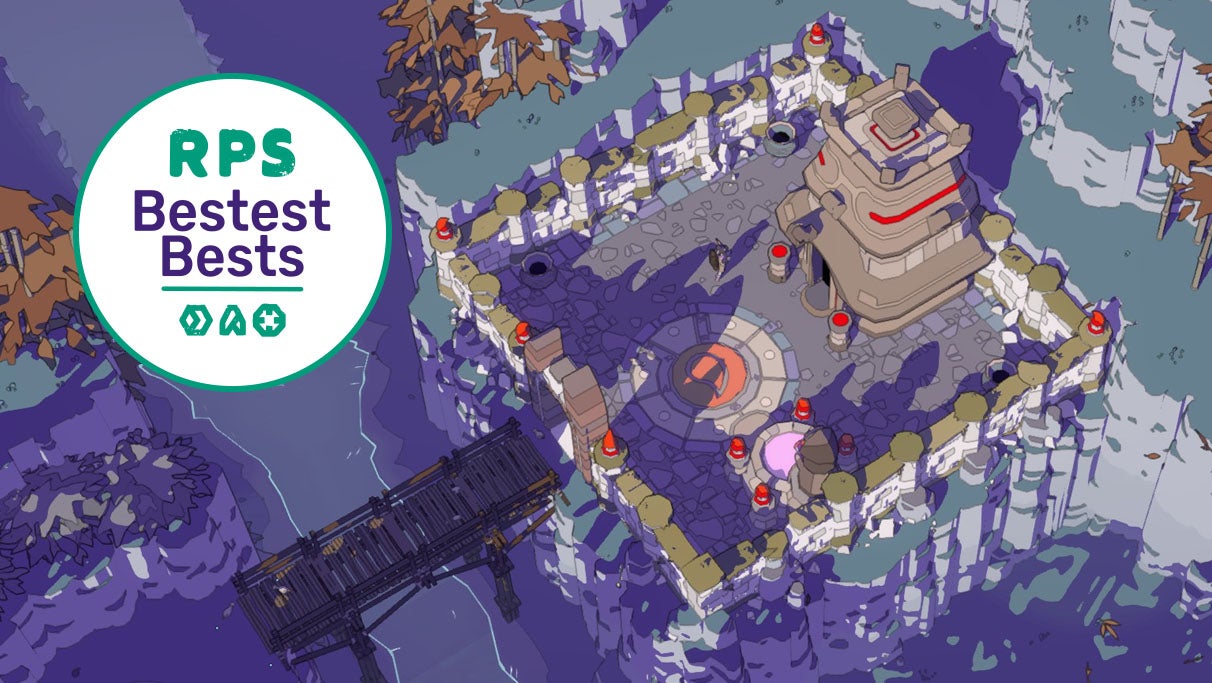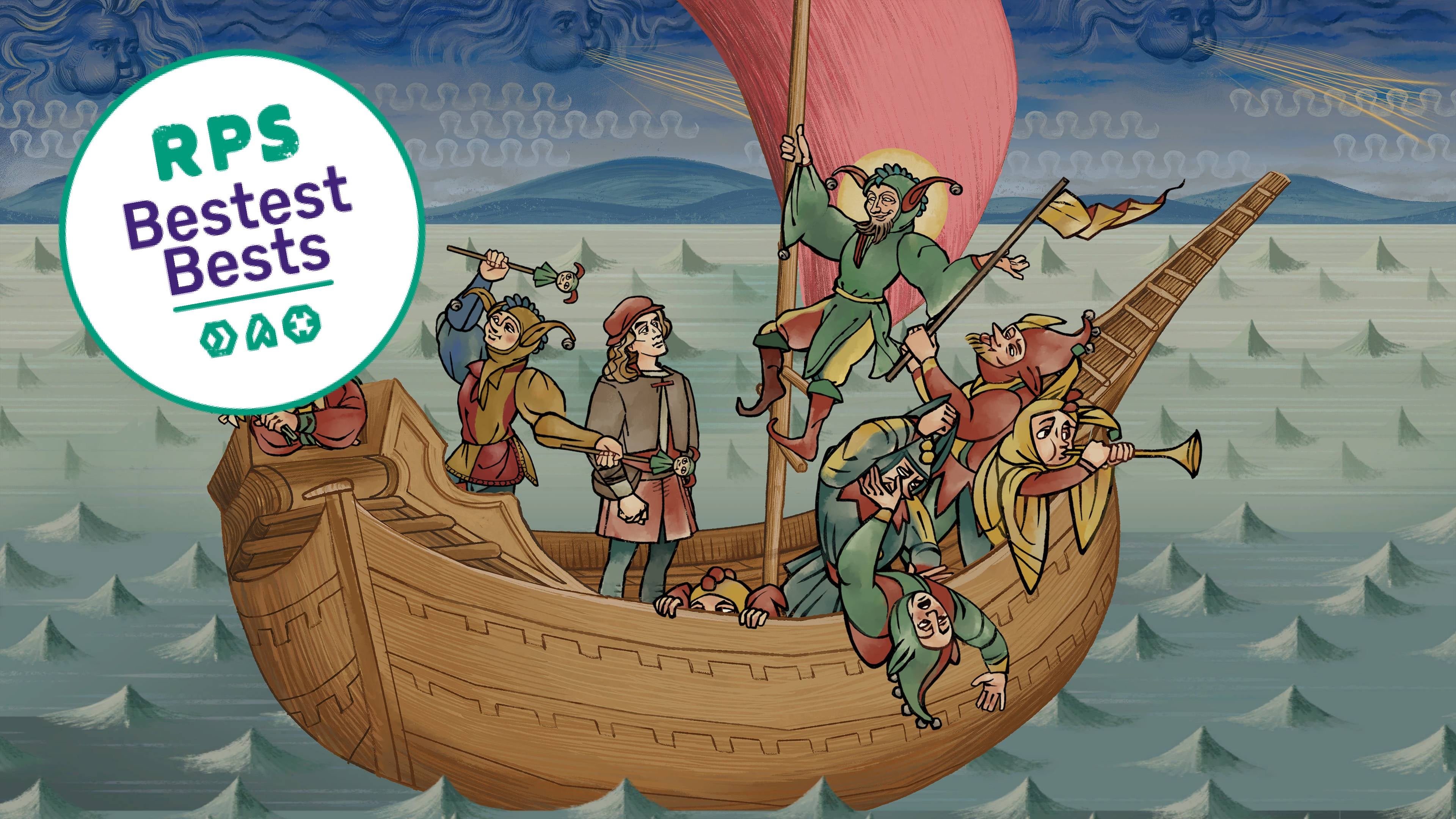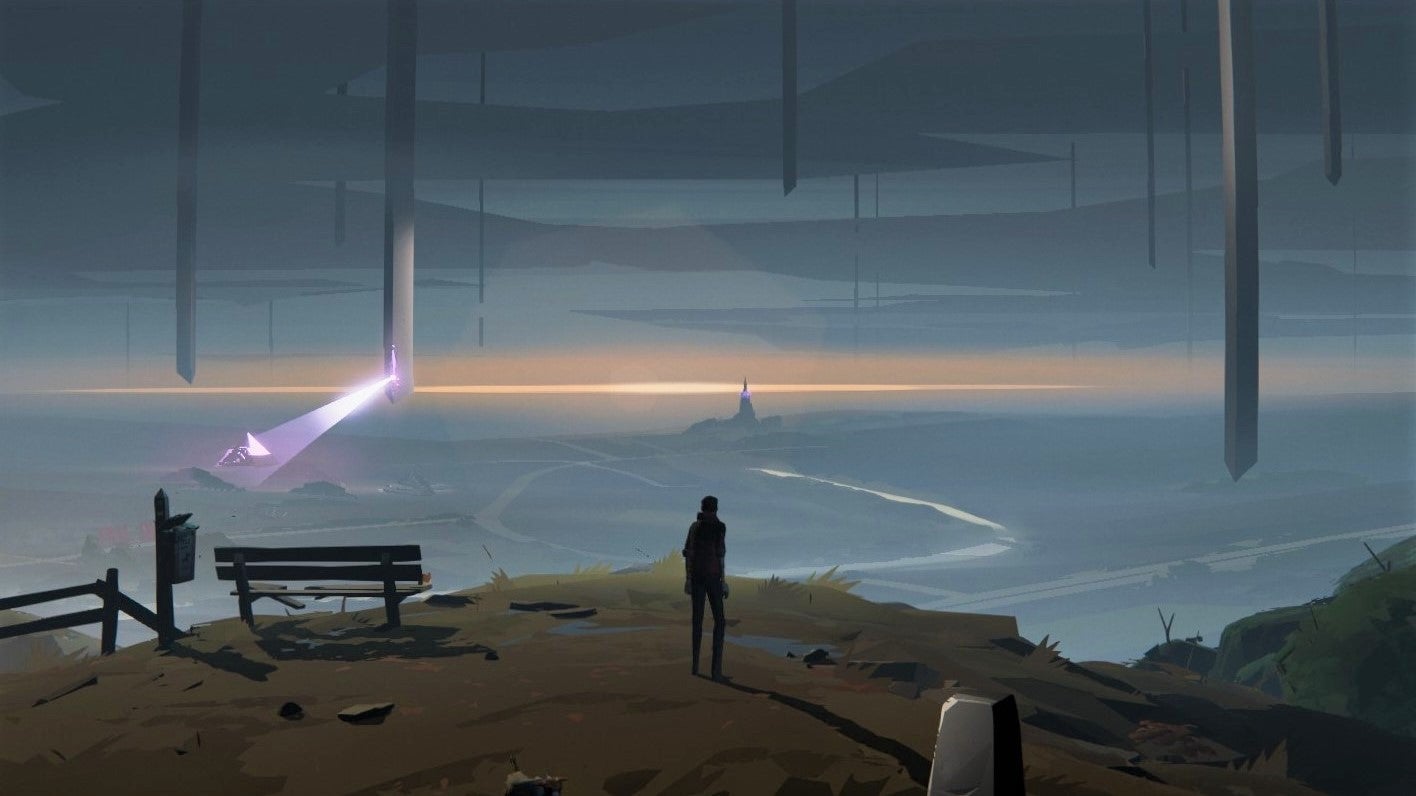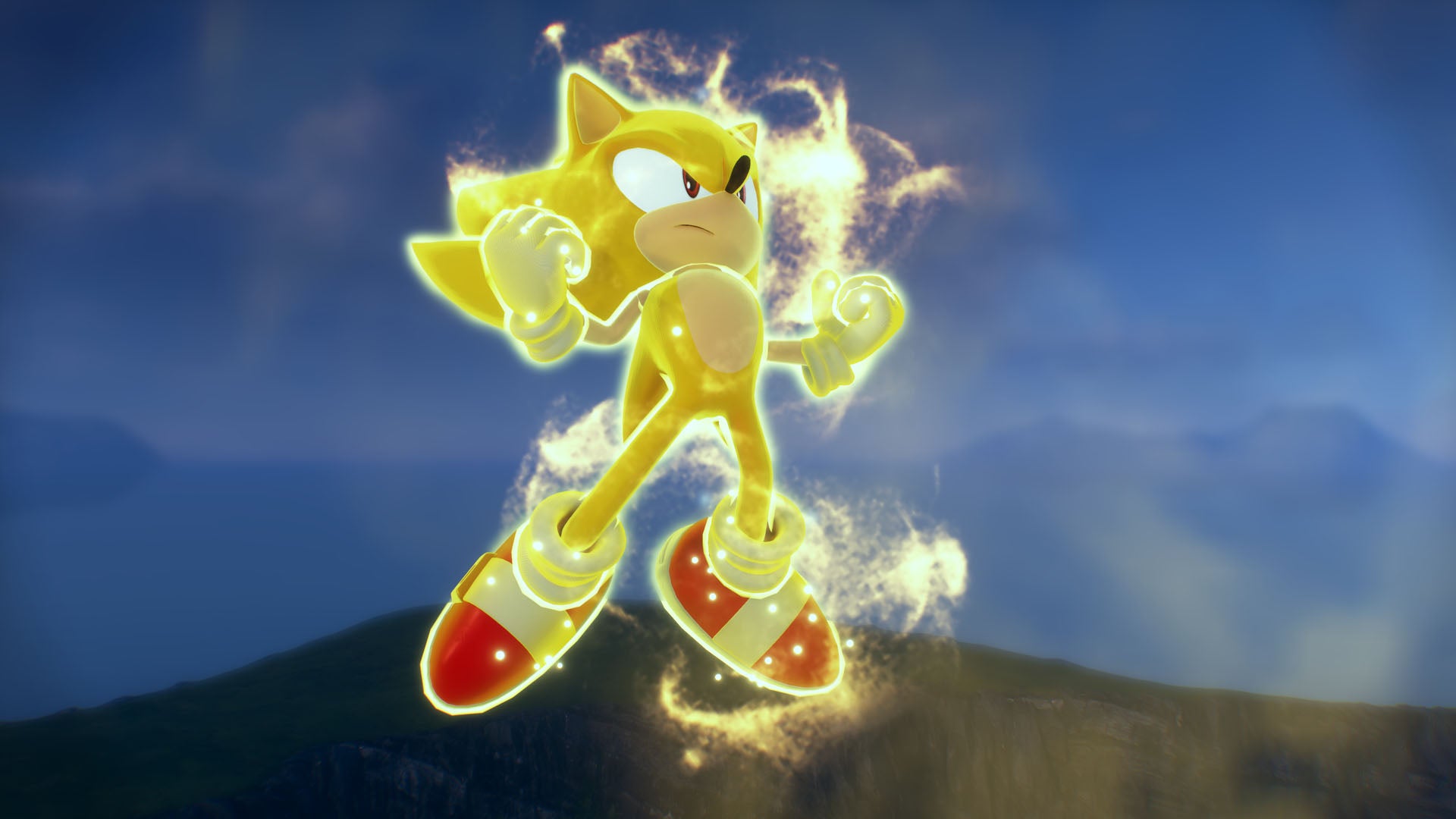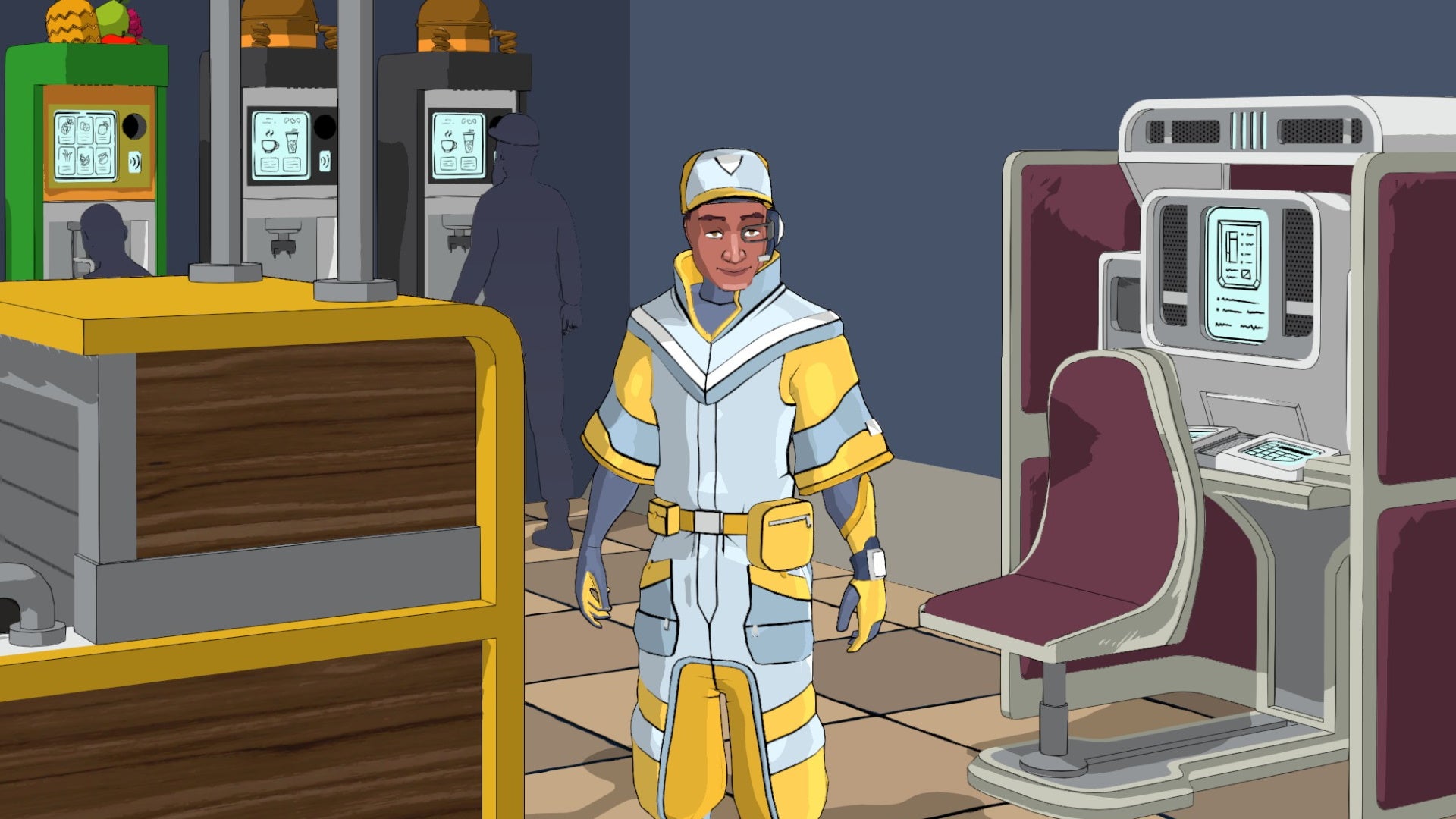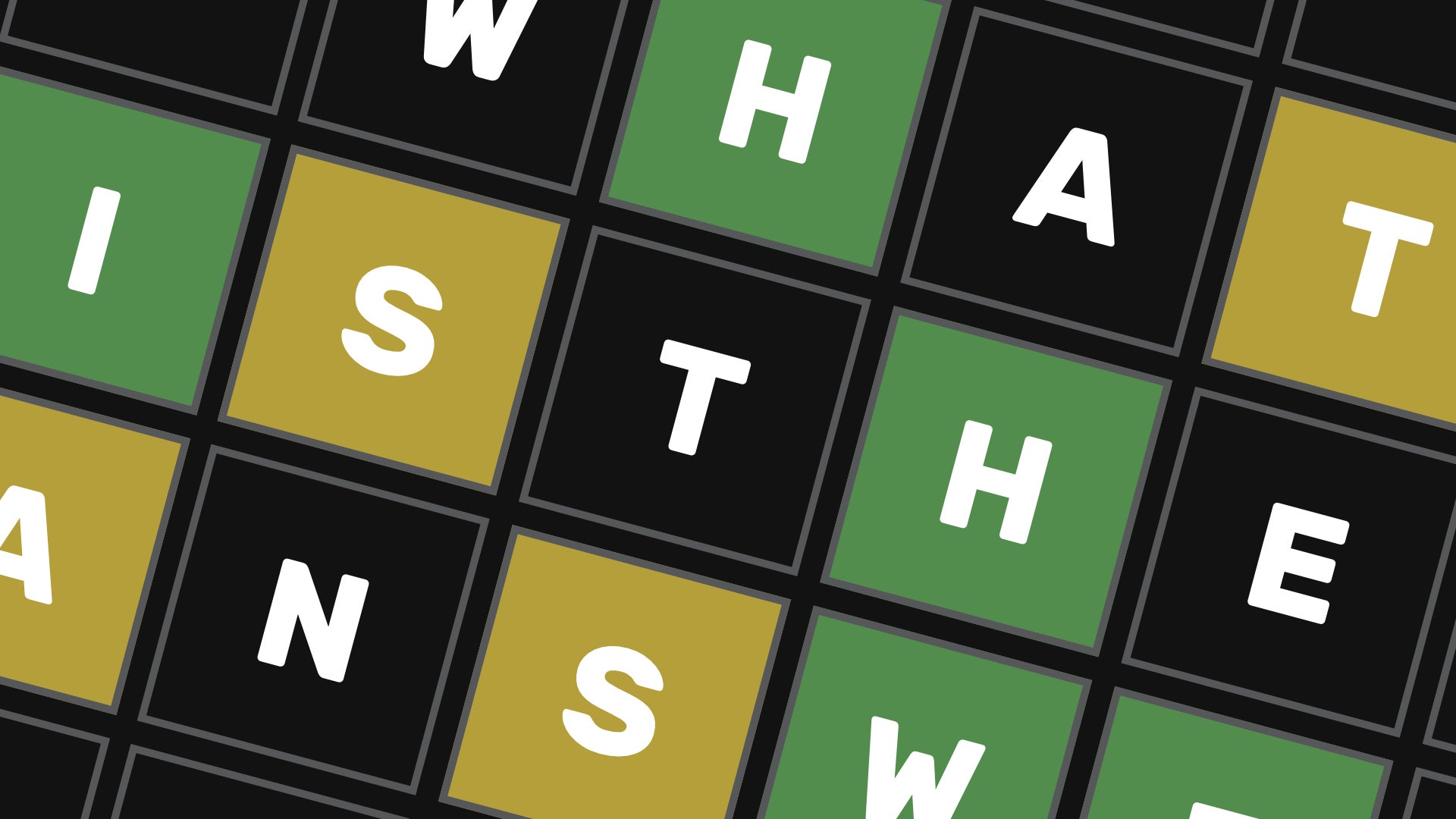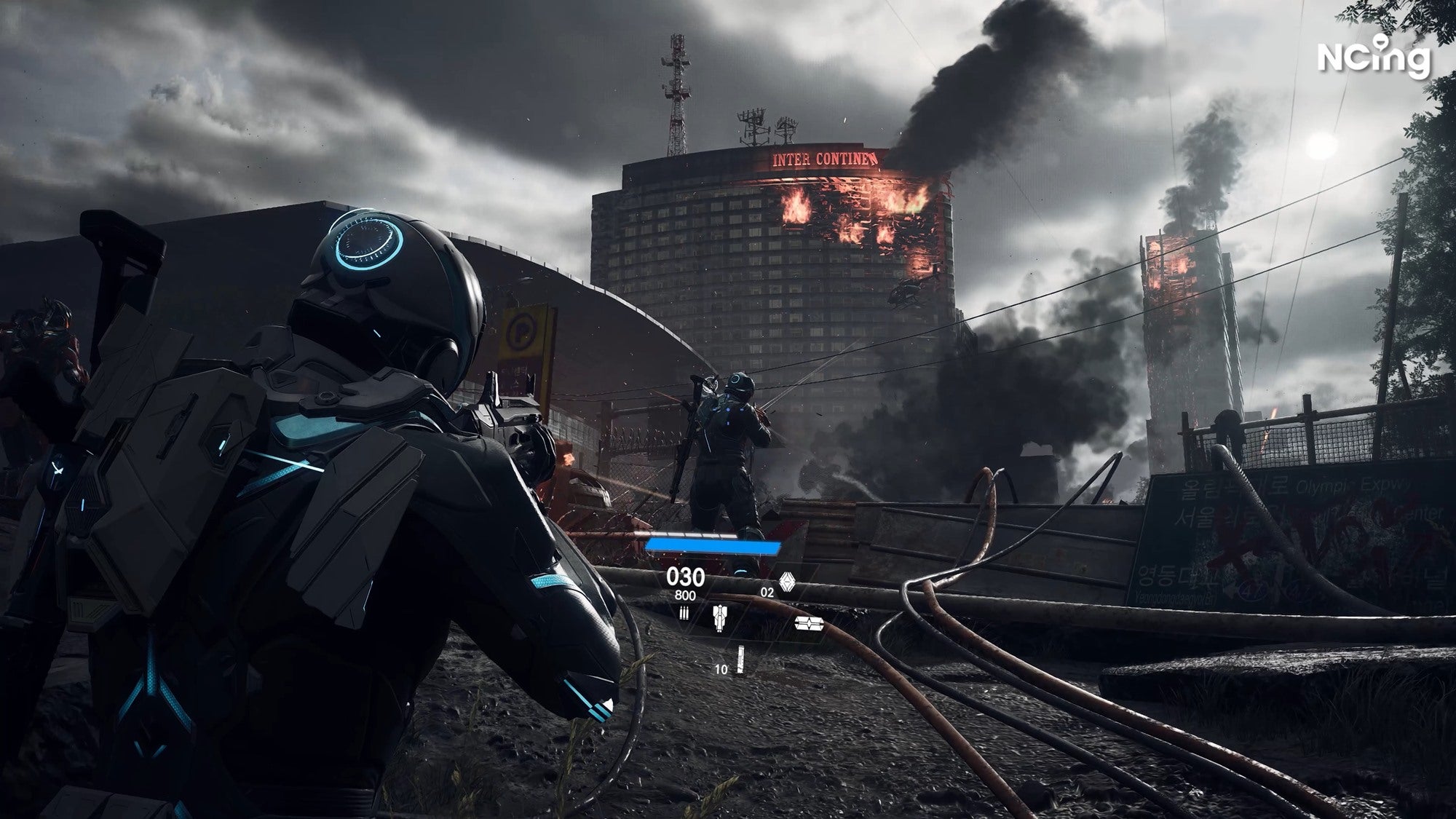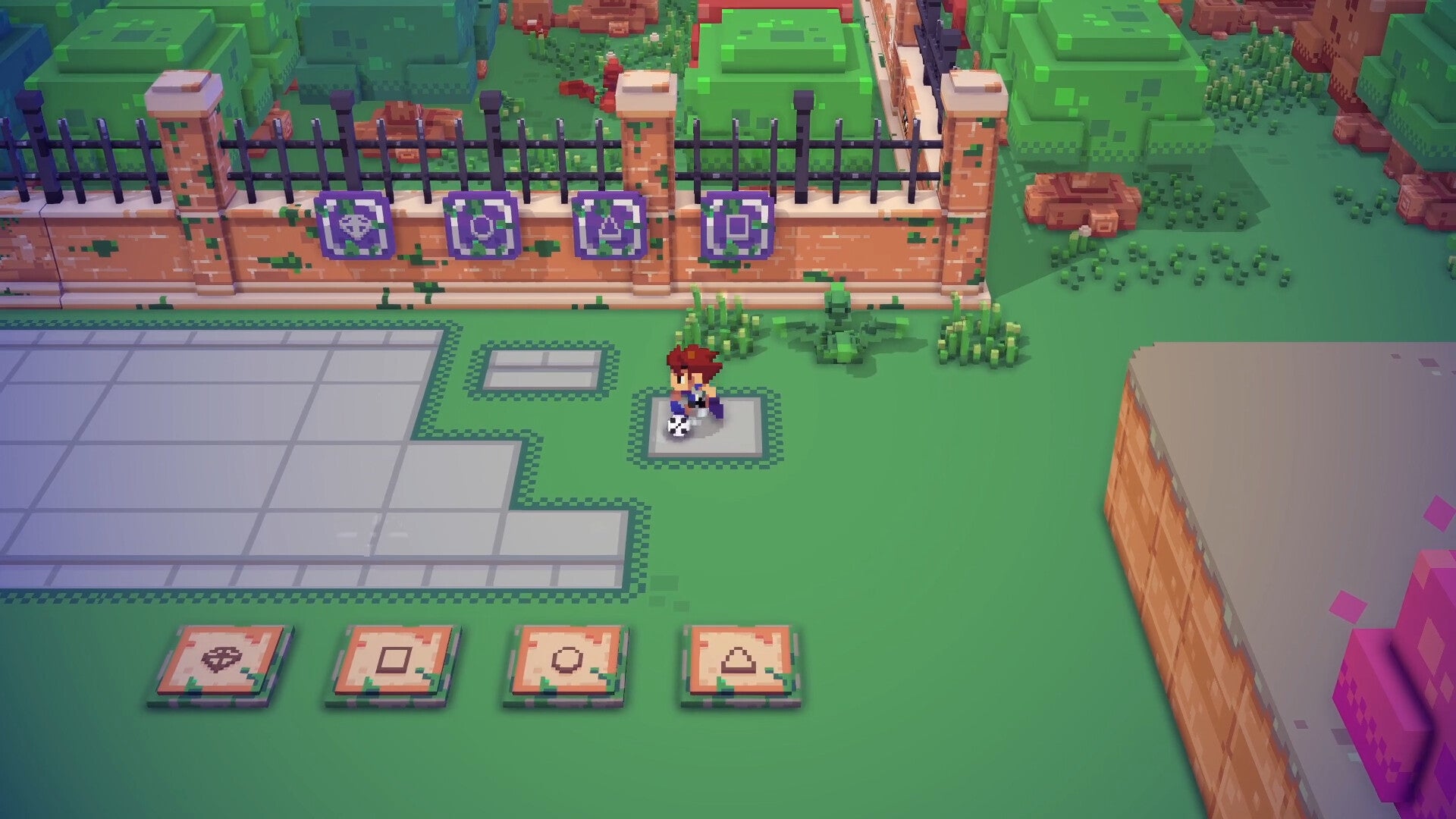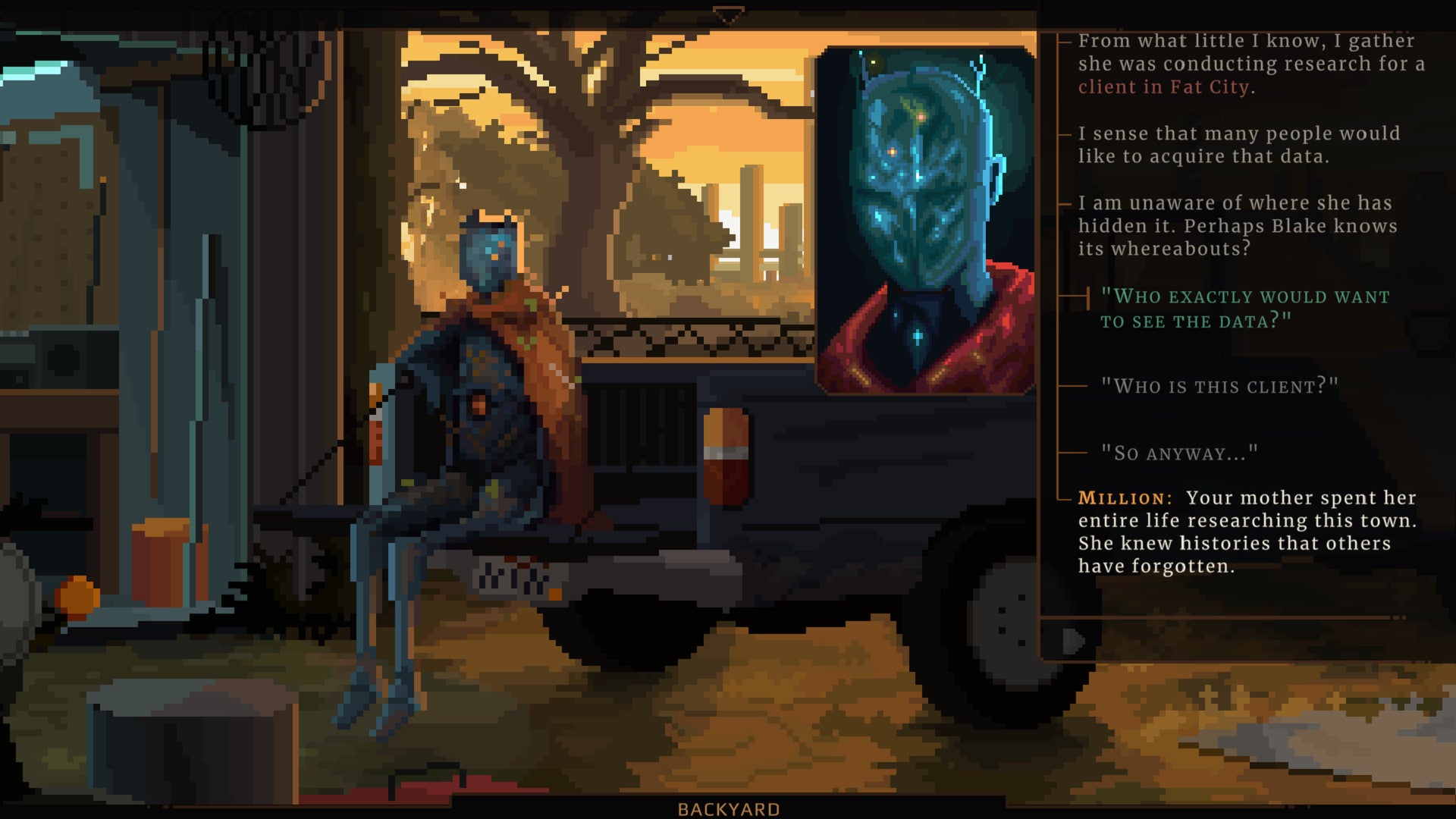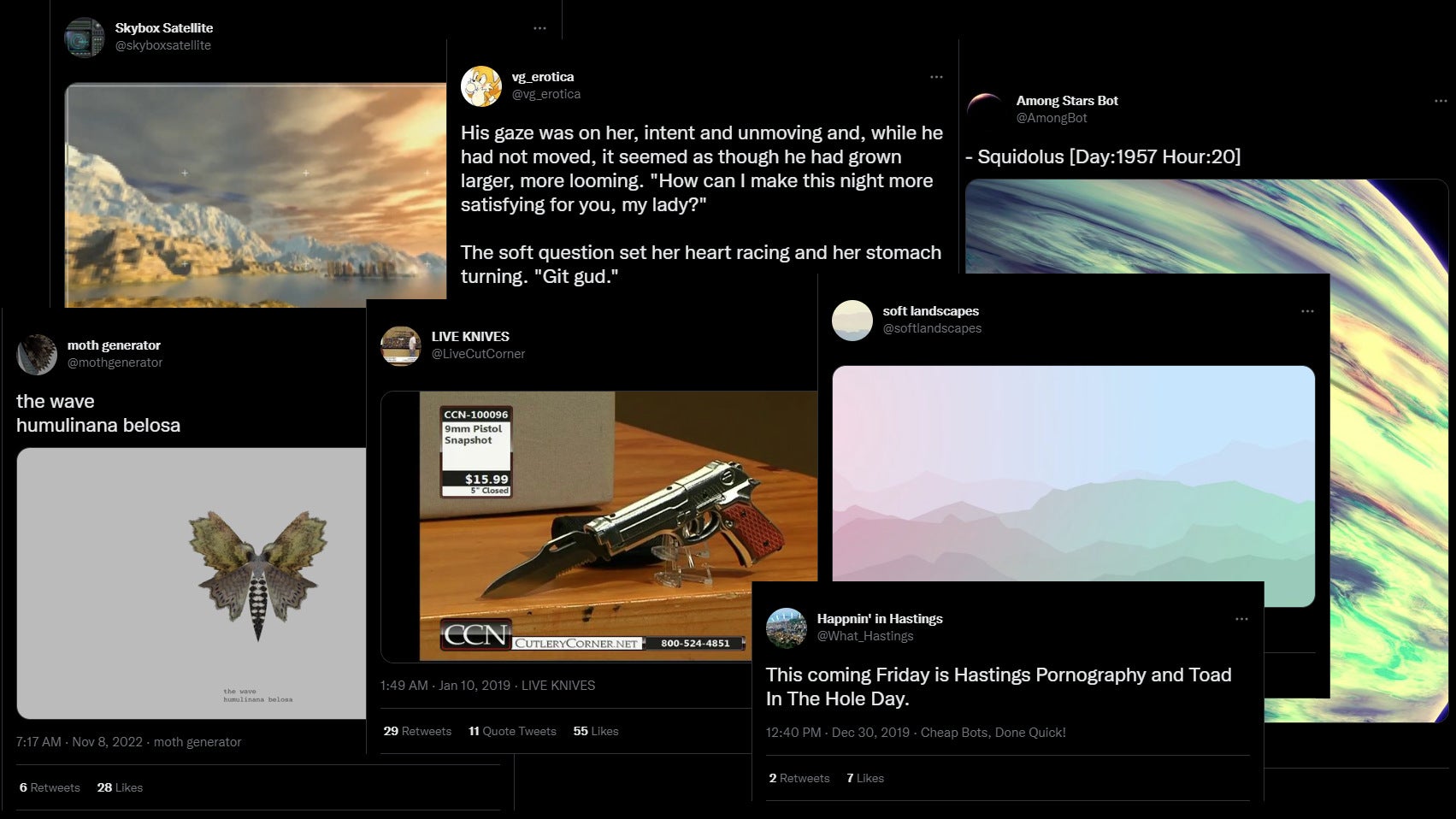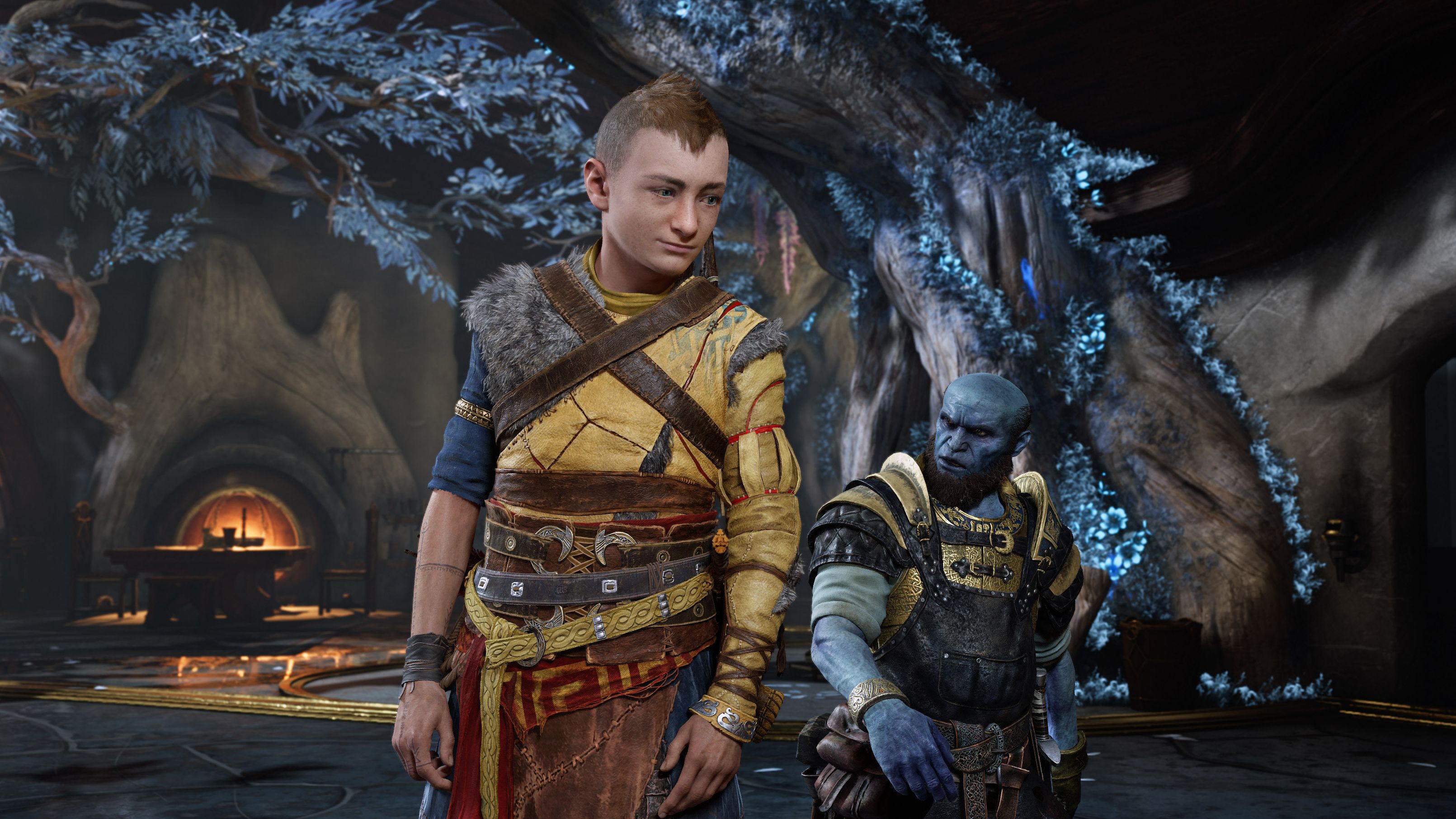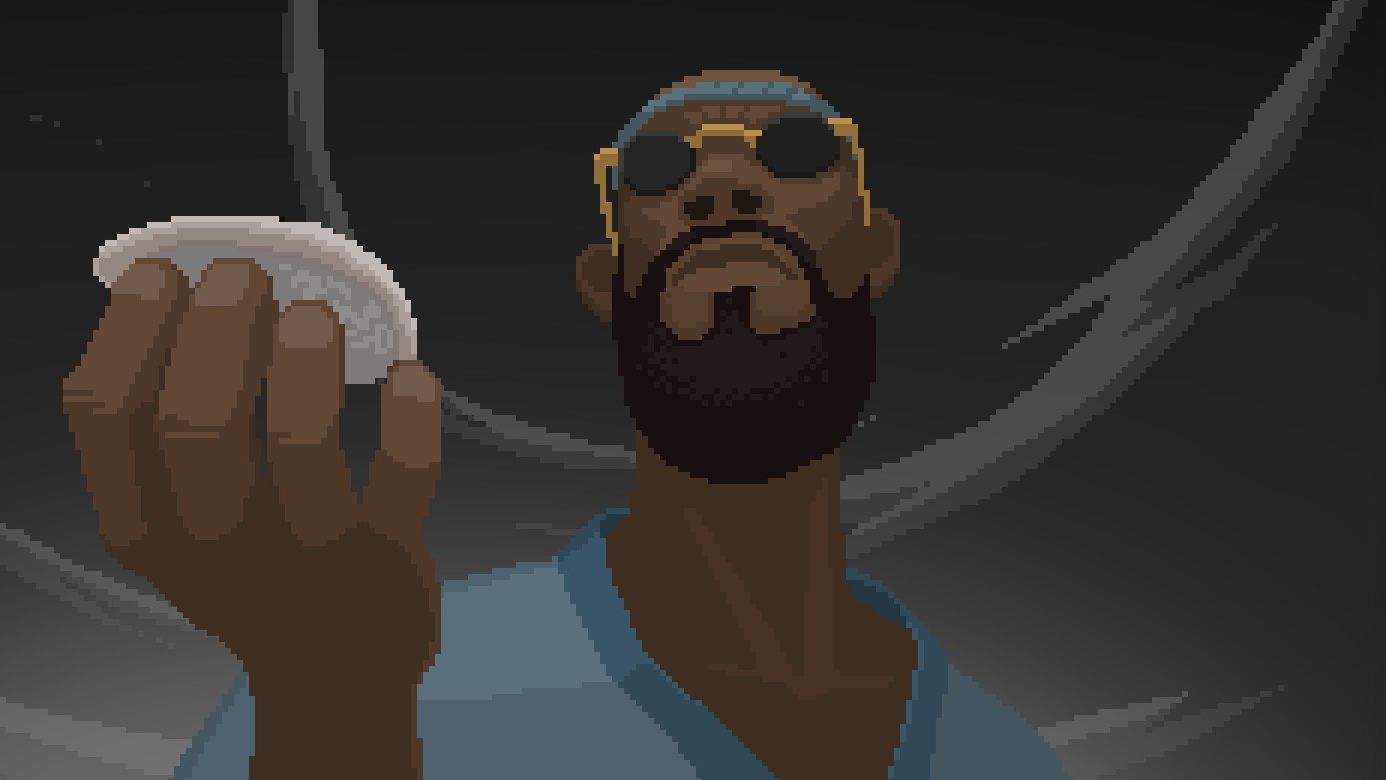Unexplored 2: The Wayfarer's Legacy review: a special, chunky roguesomething
Fortune favours the knaveGather round the fire, rogue likers and roguelike likers. In a moment of high folly, perhaps hubris, Unexplored 2 has arrived to these lands to preach the benefits of novelty and moreish dungeon delving. This is a chonker of a roguelike RPG, in which long-held assumptions about how the genre ought to be designed are thrown away, while others are strictly obeyed. The designers of this colourful 'splorer have rubbed their chins and decided to see what our beloved randomly generated death tales would look like without two sacred cows: money and meters. Folks, it looks kinda good.
Before I get into what makes it feel special, let me sketch an idea of what's going on. You're a little dude on a quest to destroy an ancient staff. You've got to march it to a deadly region called the First Valley and find a big forge where it can get wrecked. Moment to moment that means top-down dawdling through pretty pockets of procedurally generated forest, desert, mountain, snow, badlands, and swamp, possibly fending off monsters. Then trekking across a world map as an increasingly exhausted meeple.
Journeying comes with small obstacles or encounters. You might get wet traveling through a storm, then be unable to withstand the cold of night. You might get lost and find your meeple flung sideways into another location altogether. These status modifiers (cold, wet, fatigued, wounded) stack up and reduce your level of Hope. Which eventually threatens to permanently cleave the sweet passive bonuses you built into your character at the start of a game (a quicker running speed, a buffed health pool, and so on). I recklessly dipped into a lake to see what would happen, for instance, then travelled through an autumn wood, which made my fantasy bird man so cold and soggy he lost his top-level Hope trait. In this case, extra luck in the game's lucky dip style "fortune tests".
A Fortune test is essentially a clever probability minigame spruced up with flavour text. Let's say you come across a stone inscription but you can't read it. A dialogue box appears with a pool of floating discs inside. You get limited chances to go fishing into this pool of colourful tokens until a success bauble comes out, but you might also pluck a failure bauble. All the while new tokens are getting added, increasing (or scuppering) your chances at pulling out the right green-coloured disc. This happens for all sorts of interactions, from picking locks to persuading townsfolk you're a decent frogperson who is definitely NOT planning to kill them. When the game first explains this tabletop-inspired minigame of chance, it seems overwrought (why not do a simple skill check?) but the process soon becomes second nature. It's an elegant, clicky little toy and it feels somehow crunchier and more satisfying than a plain-faced dice bounce.
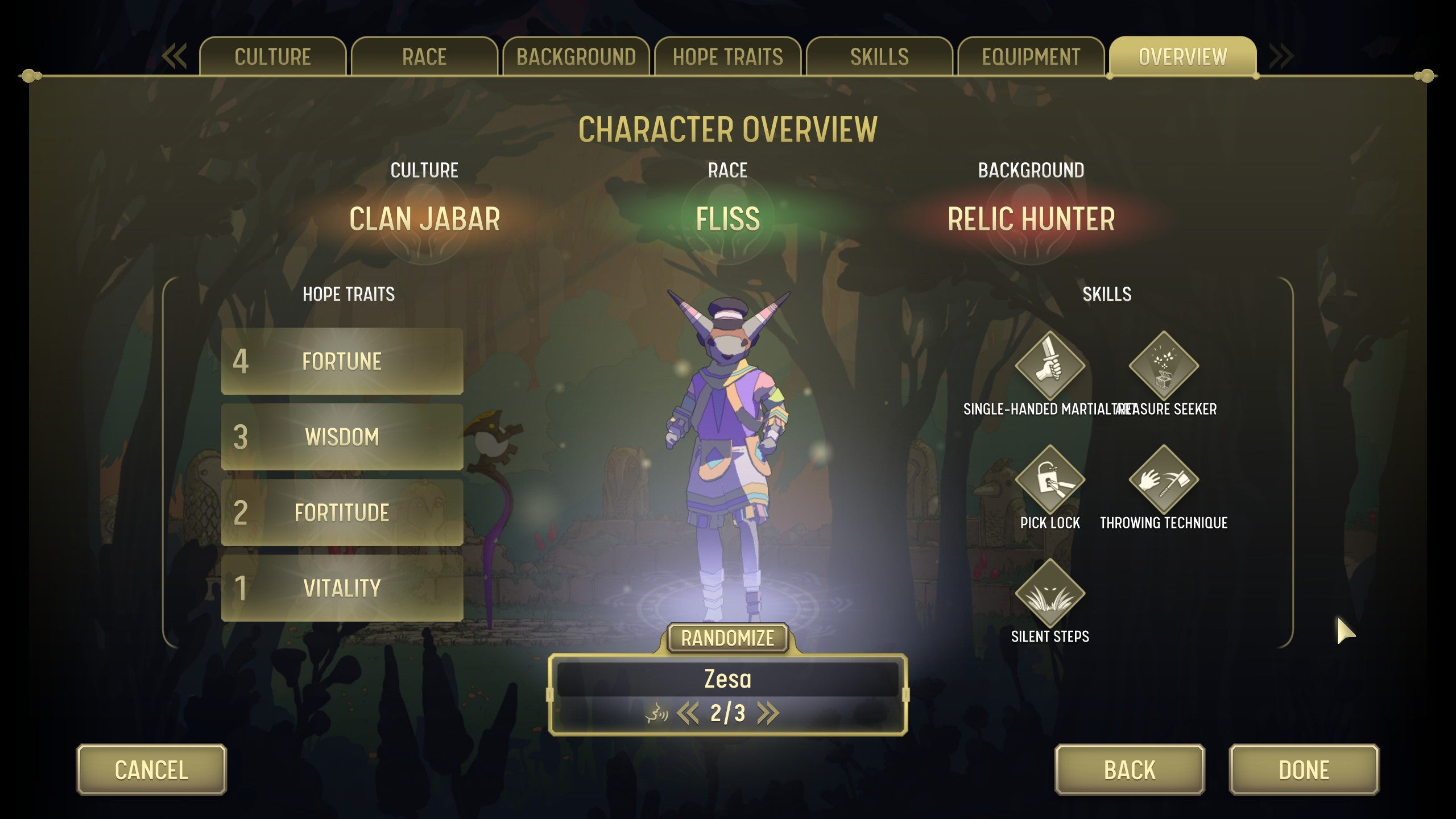
Where the "feel" of the game falters, for me, is in the combat. And this is more a taste thing than a specific failure of Unexplored 2. It's very far from the stabby tumbling I normally like. Put aside any thoughts of nimble swordplay. It took hours to stop myself from trying to sprint or roll on instinct, so spoiled have I been with isometric action RPGs like Tunic and Death's Door. This has a similar perspective and vivid style, so my idiot brain keeps trying to find out where the hell the i-frames are.
They're not here. This is a fierce Rogue apostle given 3D form. Attacking is a slow and measured matter of timing, of keeping your cursor trained on the right opponent and clicking just at the right moment. A significant cooldown on weapons rules that ye shall not hack lest ye then slash, and most weapons are best used according to their utility - swords with a knockback effect, fire-sprouting wands, an armour-piercing pick axe. Later, I got used to the bow for keeping things at a distance, and made my peace with the slower combat by being a snipey jerk.
As in all good roguelikes, your health bar becomes your economy, a personal GDP emblazoned in crimson red.
In many cases, fighting is a terrible idea anyway. You don't gain a lot of loot from kills, and you're often better off sneaking past with some light stealthiness, or talking your way out of a mugging with a lucky dip of small talk. The real loot is hidden in tubs at the bottom of dank dungeons, or past a few puzzlish rooms in an abandoned temple. Or even just in the pockets of a merchant in the next town. With the combat being a little fusty, it's smart of the game not to over-reward you for getting into fisticuffs. As in all good roguelikes, your health bar becomes your economy, a personal GDP emblazoned in crimson red. Why would you invest in a start-up knife fight with four dangerous blokes when you could deposit into the savings account of sneaking round the back?
Which brings me to the thing I admire most about Unexplored 2. Money. Or rather, the complete lack of it. There are plentiful merchants, smiths, alchemists and healers, but they're all trading on a barter system. A pair of scales weighs up the value of items for each trader, and you basically have to pile stuff onto this to see what it'll get you. Like the look of that spear? Well, toss a ring, some boots and a bit of old bread onto the scales to see if the trader will think it fair. No? Okay, trader, fine. Take my boots, why not? It's not as if I'll need shoes when I've got a big pike, haha.
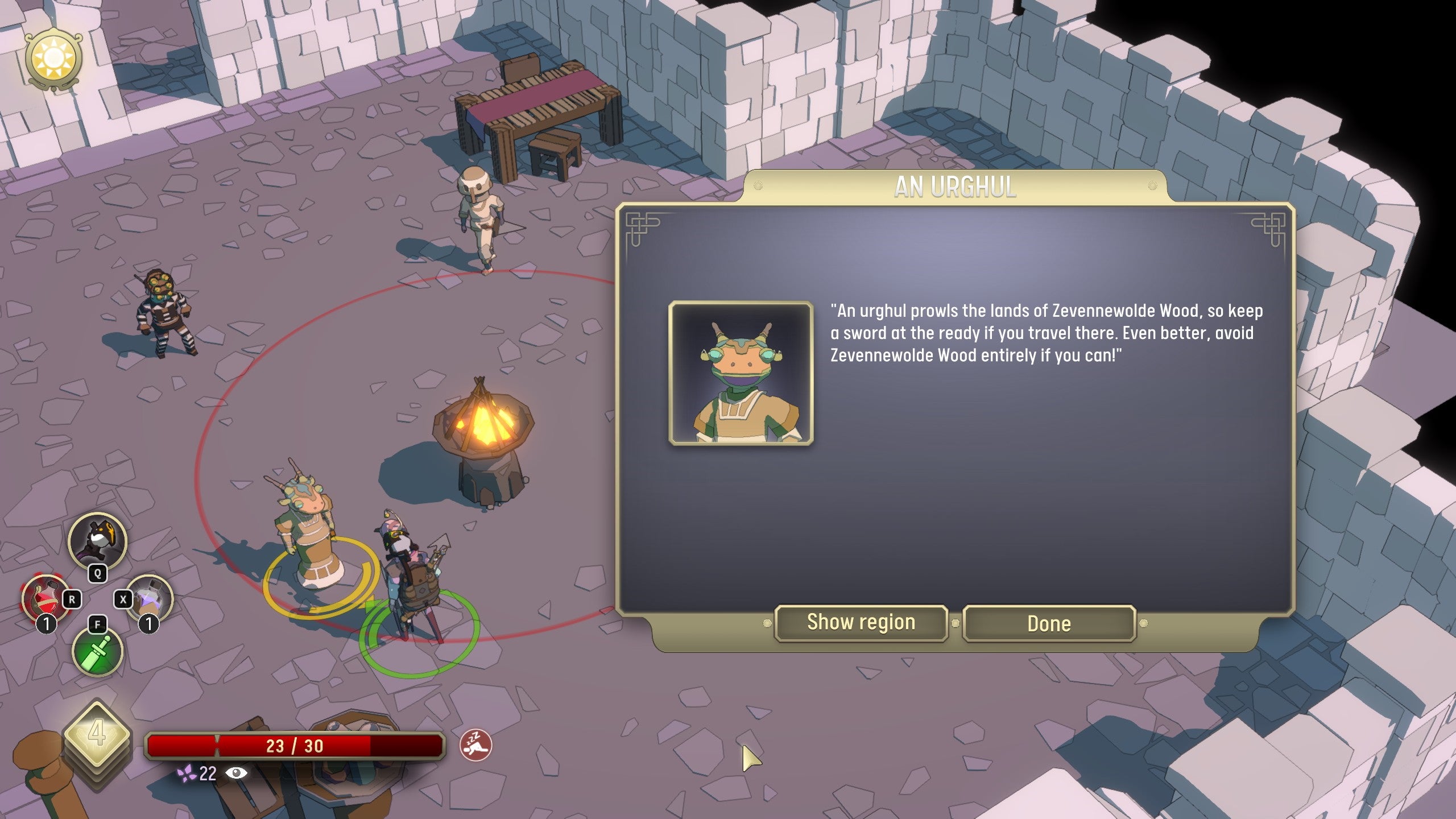
(You will need your shoes. Under no circumstances should you sell your shoes).
I like this ad-hoc means of haggling. It's not new to video games (begrudging wave to Pathologic) but it fits the roguelike format well. It forces you to think about what you truly value, to make impactful decisions about what you're prepared to live without, and what opportunities you can't pass up. Who knows when you'll next see a fur-lined cloak that will keep the cold status off you in wintry climates? Is that worth an axe? It might be. This is RPG inventory tidying that encourages thinking in terms of circumstance and real worth, rather than approaching each shopkeeper with the abacus mind of a banker.
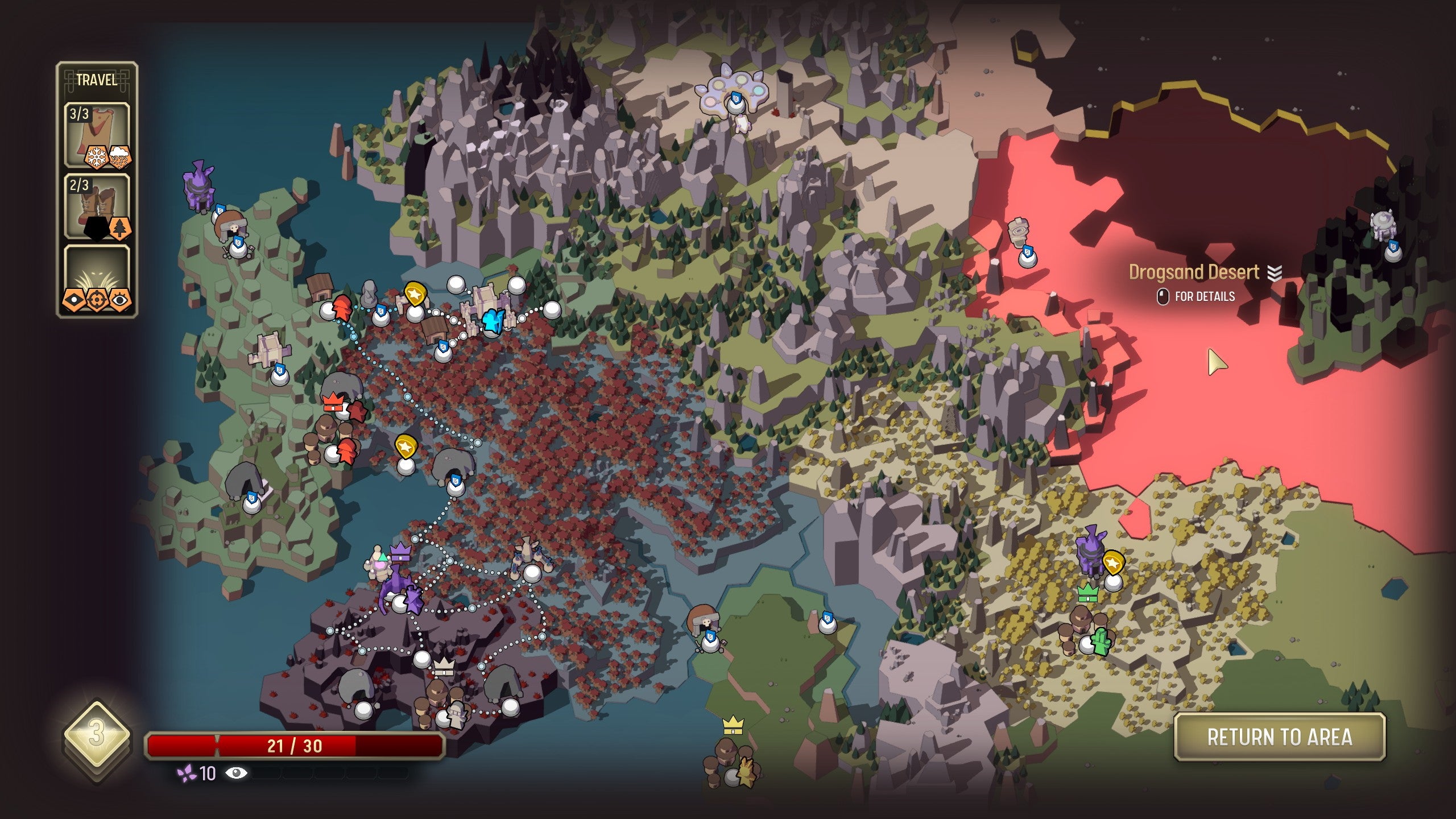
It's not the only novel twist going either. Roguelikes love it when you die. The common trick is to grant you XP or new abilities or some limited resource that crosses the mortal divide, making you slowly more powerful even as you cark it with the recurring enthusiasm of a seasonal weed. Those principles aren't totally discarded here (there are "legacy" items for example, that you keep from character to character) but Unexplored 2's design cares less about inheritance and more about how history layers itself after each kick of the bucket.
When you die, years will pass and the clans will dally about, settling new towns or getting stomped by bandits. Meanwhile the Empire (charcoal black stain on the map and bona fide bad news) spreads like a threatening oil spill. All this plays out in an inter-life sequence, as dinky little meeple movements on the grand map. And then you're thrust back into things, building a new character to explore the same world. The only way your world can end (aside from wiping the save file to make a new one) is if you die in the last area. That tough final region called the First Valley. Eat dirt anywhere but Mordor, basically.
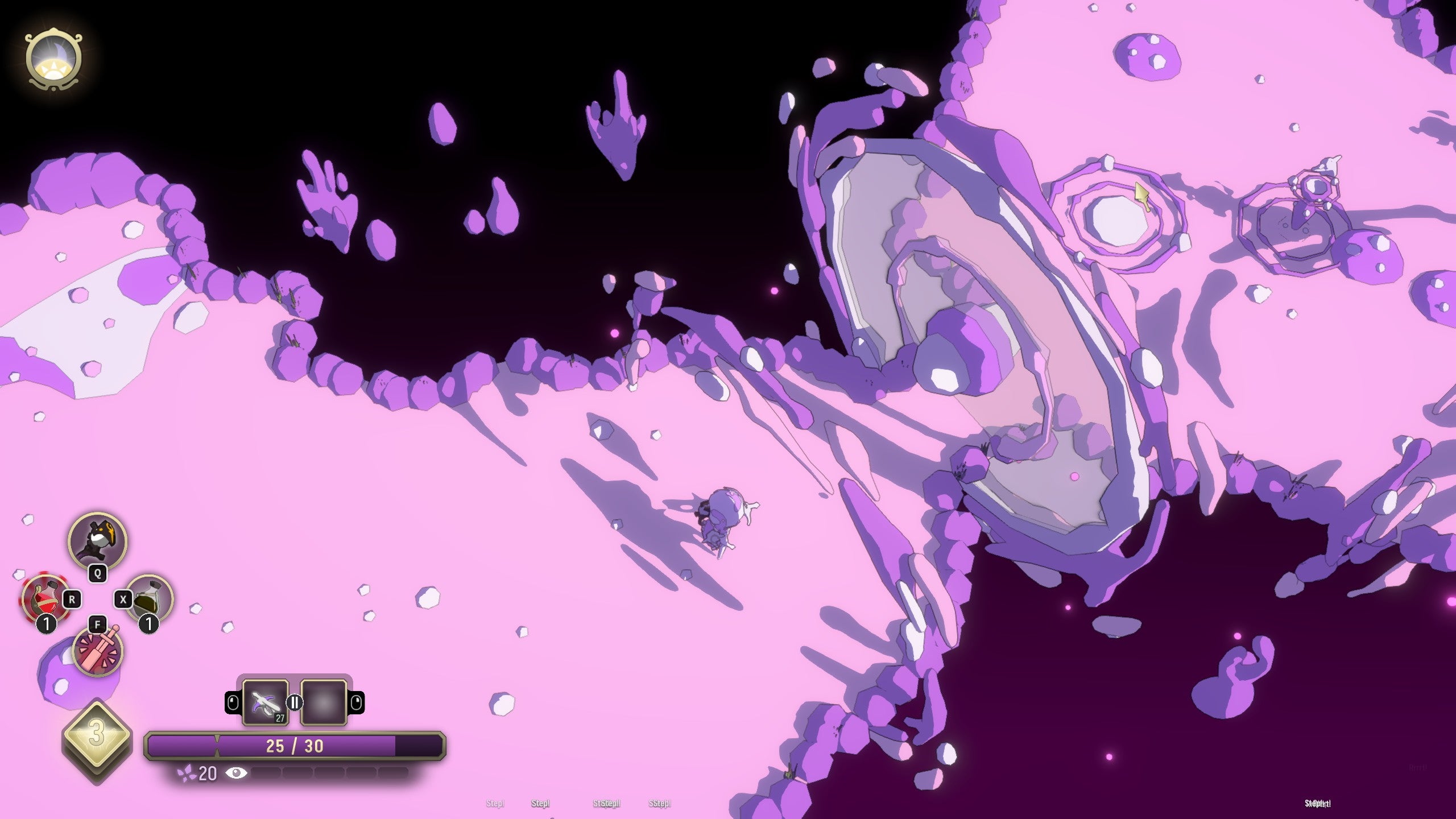
I think by now you're starting to see why Unexplored 2 feels a bit special. It might come as no surprise to those who followed Adam's recommendation for the first Unexplored. But this time, those put off by the simplistic art will have to find a new excuse. Here it's striking stuff, swapping between palettes of complementary hues with each shift in the day-night cycle, and tracing a well-defined ink line around silhouettes (you might've seen similar art direction in hoverbike 'em up Sable and in the upcoming robo-builder Mars First Logistics).
It's only a pity that tall trees, rocks and other objects can obscure your view while exploring or talking to local weirdos. You can slap the Shift key to change perspective but I never found a perfect camera setting that balanced a good overview with total clarity. I ended up swapping between the different zoom options quite often. That might be the intended solution but I have crap hands. My poor, strained pinky.
It's not my only complaint. The lore is exhausting and ultimately it all smooshes together into an amorphous blob of proc-gen nonsense (I hope you like learning Fantasy Place Names) and there's a gulpable pint of bugs. I've been unable to leave an area because there were invisible hostiles nearby. I put an empty quiver into a jar in a dungeon, then fished it back out, refilled with arrows. I've been unable to rest at an inn because the game thought I was being attacked and could thus never sleep. I'm willing to forgive this stuff. A game with so much systemic depth is bound to have quirks. But it's also been in early access on the Epic Games Store for a year now, so I also expected it to be a little cleaner.
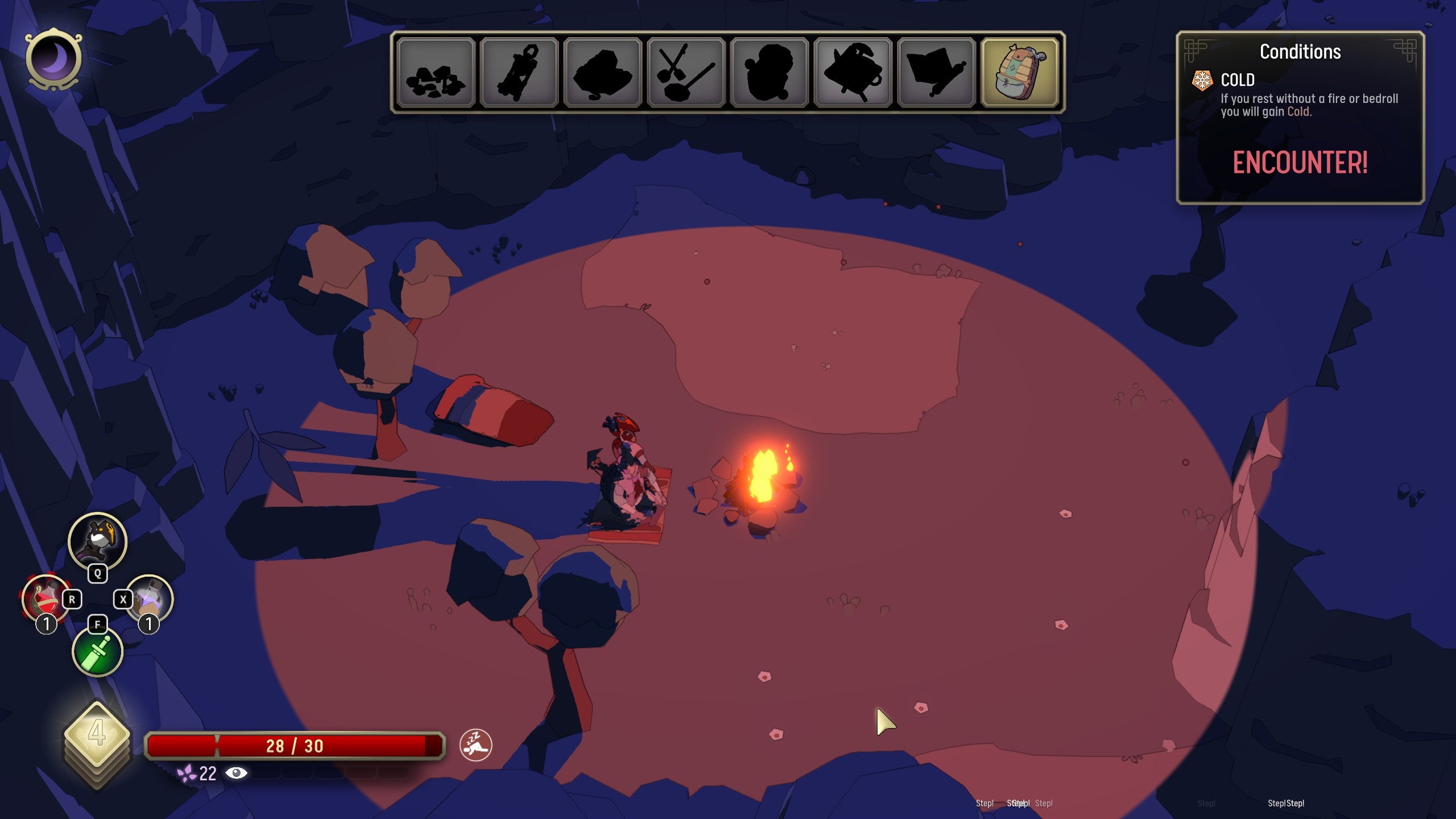
Regardless, a great depth and intelligence of design is there. I've not had time to mention half of the swish stuff. The unlockable character classes, the trap-filled caves, the magical infusion of weapons, the clan diplomacy… It is a chonker of a game, an RPG where the 'R' stands for Rogue. At the very least you're getting another sweet anecdote generator. I've had to run away from upset farmers because I helped myself to their turnips without asking. I passed two bandits lazing by a fire and they scolded me for not having food to rob, so I snatched a bunch of lockpicks from their bag and ran off like a petulant goose. Who's worthless now, scumbags? Not me.
You're likely to have similar dust-ups and shakedowns, of course, given the component parts of any procedural machine. But vitally, Unexplored 2 makes the player feel adventurous and special. Even when you've got no money, no XP, and no shoes.

